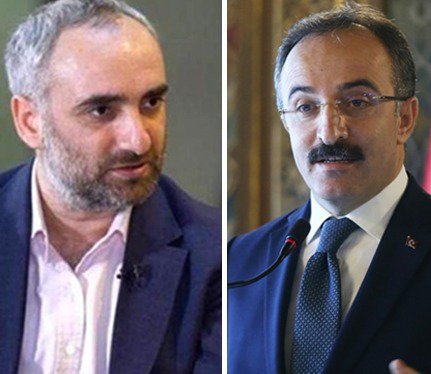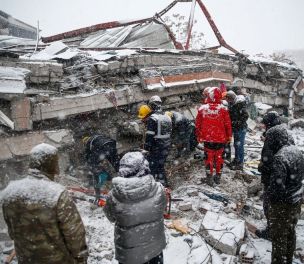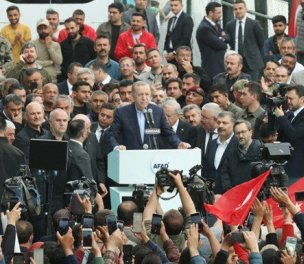Click to read the article in Turkish
Adil Karaismailoğlu, the Minister of Transport and Infrastructures, defended the internet restrictions implemented after the February 6 earthquakes saying "It was necessary," but was not able to give any reasons.
Joining a TV program on Habertürk TV, the Minister answered the questions of Mehmet Akif Ersoy.
Two days after the devastating earthquakes, authorities restricted the bandwidth of Twitter for nearly an entire day. The restriction was lifted after widespread criticism that Twitter had an important role in rescue efforts.
"Daddy, please send an ambulance!"
The following is one example showing how a little girl, trapped under the debris after the earthquake, is trying to reach her father using her mobile phone, sending voice messages, which do not go through.
Her mobile was found days later, next to her dead body.
"Daddy, an earthquake happened in Hatay!
An earthquake happened in Hatay, daddy!
I am under the debris now.
Please send an ambulance. Please tell them to send an ambulance to this location. I am begging!"
"Daddy; it seems I am going to die here. Nobody is helping.
Daddy, really, I am going to die here. I am in a very bad situation. Your messages do not reach me. Daddy!"
Ulaştırma bakanı Adil Karaismailoğlu 6 Şubat'ta onbinlerce insan enkaz altında yardıma ulaşmaya çalışırlarken internet iletişiminde bant daraltmayı savunuyor:
— bianet (@bianet_org) April 6, 2023
"Gerekiyordu ki, yapıldı!" pic.twitter.com/XmgnPHx67w
Ersoy's questions and Karaismailoğlu's answers
Ersoy- Why did you do a bandwidth restriction? I guess the Republican People's Party has submitted a parliamentary question on this. This bandwidth restriction was widely criticized. In that period, when we were also there. What would you say?
Minister- This is an issue that has been submitted to the court. Our friends are pleading there. It was such a situation. It was necessary so this was done.
Ersoy- Was it a wrong decision? Or...
Minister- It would not have been done if it was a wrong decision. In the end it needed to be done at that time and it has a technical explanation. And we made that explanation, why it was necessary?
Ersoy- So why was it necessary?
Minister- There is an extraordinary situation. An extraordinary disaster. Then such a thing needed to be done there.
Ersoy- Something related to security, or else..?
Minister- It could be security. Of course, security because we have our citizens there under the debris. We had many problems with social media. This is already an issue that has been submitted to the court. We have made the necessary explanations there also.
What happened?
On February 6, two earthquakes with a magnitude of 7.7 and 7.6 struck the southern city of Maraş. The first quake in the Pazarcık district at 4.17 a.m. was followed by the second one in Elbistan about nine hours later.
The quakes affected 11 cities in Türkiye's south and southeast, as well as Syria's northern parts, where over 5,000 people have died.
Türkiye's death toll from the quakes stands at over 50 thousand and is expected to increase further, as over 227,000 buildings were destroyed or severely damaged, according to government figures.
Nearly two million people have been displaced due to the earthquakes.
Two days after the devastating earthquakes, the authorities restricted the bandwidth of Twitter for nearly an entire day. The restriction was lifted after widespread criticism that Twitter had an important role in rescue efforts, with many people under the rubble tweeting their locations to call for help.
According to what is known as the "social media law" enacted in 2020, the Information Technologies and Communications Authority (BTK) has the authority to restrict the bandwidth of social media platforms for 10 hours at times of "war, attacks, natural disasters, and similar extraordinary situations."
For restrictions for over 24 hours, the agency needs a court order. (AEK/PE)






as.jpg)
as.jpg)

